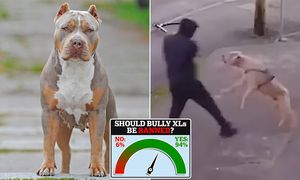LOS ANGELES — The pilot of a drone involved in a mid-air collision with a firefighting plane has agreed to plead guilty to charges stemming from the incident, which grounded the aircraft during one of the most destructive periods of the Los Angeles wildfires. Peter Tripp Akemann, 56, faces up to one year in prison for recklessly operating his DJI Mini 3 Pro drone.
The collision occurred on January 9, as the Palisades Fire, which had begun just two days earlier, wreaked havoc on the upscale Pacific Palisades neighborhood. The blaze destroyed or damaged nearly 8,000 structures and claimed at least 12 lives.
According to the U.S. Department of Justice, Akemann launched his drone from the top of a parking structure in Santa Monica, nearly 1.5 miles from the fire. He reportedly lost sight of the drone, which then struck the wing of the Canadair CL-415 Super Scooper, leaving a gaping three-by-six inch hole.
Acting U.S. Attorney Joseph McNally emphasized the seriousness of the offense, noting Akemann's actions posed significant risks to both the firefighting crews and the broader community. "This defendant recklessly flew an aircraft where first responders were risking their lives to protect lives and property," he stated.
Despite the risk posed by drones operating in emergency zones, Akemann will not serve jail time under the terms of his plea agreement. Instead, he is required to pay approximately $65,000 to cover the damage to the Super Scooper and to complete 150 hours of community service related to wildfire relief efforts by 2025.
With drone operations prohibited by the Federal Aviation Administration (FAA) during the firefight, the circumstances have sparked outrage. One local resident expressed disbelief at the leniency of the plea deal: "This is not justice. I’m not saying it would have, but the plane could have maybe saved homes and businesses if it hadn’t been damaged.”
Akemann's legal team has characterized him as "deeply sorry" for his actions, noting the drone’s failure of its geofencing safeguard feature contributed to the loss of control. Following this incident, drone manufacturer DJI implemented software updates aimed at improving safety measures for its users.
The FAA, along with the Los Angeles Fire Department (LAFD), and California's CalFire, were involved in the investigation following the incident. A significant aspect of the investigation led to Akemann being tracked down swiftly, as authorities were determined to address illegal drone operations interrupting firefighting efforts.
Federal officials highlighted the necessity for drone operators to understand and comply with regulations, especially during wildfire events. Akil Davis, assistant director of the FBI’s Los Angeles Field Office, noted, "Lack of common sense and ignorance of your duty as a drone pilot will not shield you from criminal charges." This statement serves as both a caution and reminder of the legal standards surrounding drone use.
The Palisades Fire was fueled by dry Santa Ana winds, which exacerbated the situation, with the fire roughly 98% contained by January 13. Another fire ignited concurrently in Altadena, resulting in multiple fatalities and extensive property damage.
With upcoming major events such as the World Cup and Olympic Games set to take place in Los Angeles, local authorities are intensifying their focus on drone regulation compliance. The Akemann case serves as both a warning and example for drone users across the nation, demonstrating the significant ramifications of disregarding established airspace restrictions.
The community remains on edge as the memory of the destruction from the recent wildfires lingers, and advocacy for stricter drone regulation continues to grow. Amidst this backdrop, Akemann is scheduled for sentencing, with many hopeful for more severe penalties to deter similar reckless behavior by drone operators.



